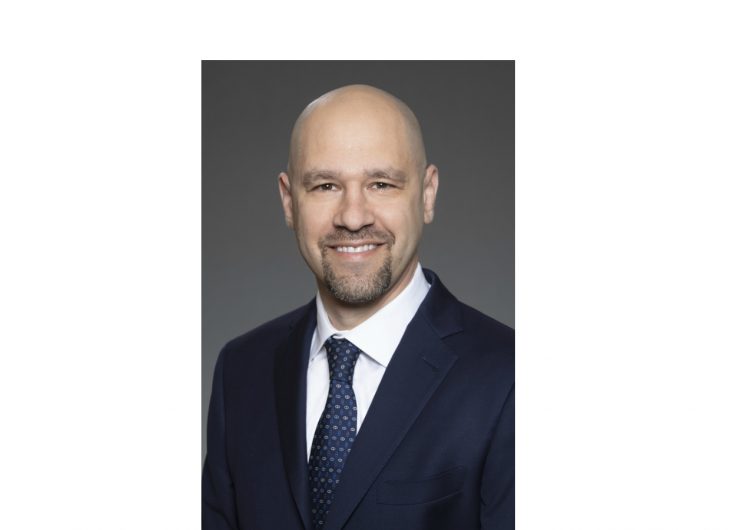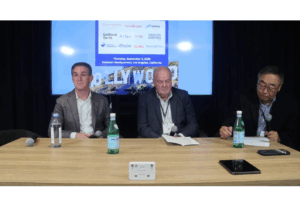
Derek Zaba, Partner and Co-Chair of Shareholder Activism at Sidley Austin LLP
As the stock market recently touched record highs, activist hedge funds with a mandate to wage campaigns have been forced to look harder for targets and will inevitably explore industries they had usually avoided such as insurance, banking, and utilities. And while there has been much discussion of environmental, social, and governance (ESG) topics, activist campaigns will likely remain squarely focused on purely economic issues and use performance proxies such as total shareholder return to anchor their arguments. That’s according to Derek Zaba, Partner and Co-Chair of Sidley Austin LLP’s Shareholder Activism practice, who spoke to CorpGov in a wide-ranging interview. Mr. Zaba also said that the recent push against shareholder primacy may be short lived; even it has legs, the impact on activism is likely to be limited to industries that truly prioritize other constituencies over shareholders. He also advised companies not to be complacent and anticipate the arrival of an activist long before it happens. The full interview is below:
CorpGov: We’re now 11 years into a bull market. With stock prices and valuations so high, how important is total shareholder return (TSR) in proxy fights at this stage in the cycle? Will TSR continue to be an important factor in how proxy contests are decided the future or do you see that changing?
Mr. Zaba: Performance has been and always will be the primary driver of activism success, but “performance” can be defined in different ways. From an activist perspective, performance is best defined as “performance against potential” – is the company maximizing value to shareholders given its holistic set of opportunities? This is a tough concept to measure accurately and objectively so proxies such as “historical performance” (e.g., absolute “total shareholder return” or “TSR”) and “performance vs. peers” (e.g., TSR relative to peers, financial statement benchmarking) are used.
Relative TSR does a pretty good of approximating “performance against potential” most of the time, and it has the advantage of being a fairly objective and universally applicable measurement construct. Thus, it’s easy for proxy advisory firms ISS and Glass Lewis to build relative TSR directly into their evaluation frameworks. Due to the importance of ISS and Glass Lewis’ recommendations in proxy contests, TSR will continue to be emphasized, and in my opinion overemphasized, in activism campaigns.
The community of institutional investors, composed of portfolio managers, analysts and proxy voting teams, that actually cast votes in proxy contests, are not as wedded to TSR. As opposed to ISS and Glass Lewis, they are not required to publicize the rationale for their decisions and are able to de-emphasize the importance of various metrics, including relative TSR, when it makes sense to do so without being subject to external critique. As a result institutional investors are more receptive to well-grounded arguments even if those arguments tell a different story (either more positive or more negative) than does TSR.
CorpGov: Do you see activism creeping into industry sectors that have been quiet up till now?
Mr. Zaba: Absolutely. As the bull market has raged on for over a decade most of the obvious activist candidates have already been attacked. Hedge funds with a dedicated activist mandate are forced to put their capital against the best activism targets they can find, regardless of whether the potential investment pool as a whole has become less attractive. One consequence of this is that we’re seeing additional activities in regulated industries such as insurance and utilities. We also expect activism to increase against banks for similar reasons, as well as due to recent regulatory changes at the Federal Reserve.
CorpGov: There has been recent pushback against the notion of shareholder primacy. How will this impact activism?
Mr. Zaba: It’s not clear how durable is the pushback against shareholder primacy. Nor is it clear that any changes made in response to this pushback will result in significant changes. Certainly, in the unlikely event that significant structural changes are made to advance the interests of other constituencies above those of shareholders then it would have some impact on activism. Regulated industries are extreme examples of this. In the insurance, utility and banking industries the interests of policy holders, rate payers and depositors, respectively, are often placed ahead of the interests of shareholders. But even in these industries, it is tougher (but by no means impossible) to be a successful activist in these industries. As a result, I don’t see a push towards stakeholder primacy slowing down the activism train under any reasonably possible scenario.
CorpGov: There has been much discussion of environmental, social, and governance (ESG) issues recently. To what extent have activists focused on ESG?
Mr. Zaba: As a general rule, activists don’t truly care about non-economic issues. They focus on the arguments that they believe will have the most direct impact on the stock price in the shortest time possible. Non-economic issues are generally raised as a means of obtaining support from proxy advisor firms and proxy governance teams. As a result, non-economic arguments tend to become more prominent if the activist’s campaign progresses towards a shareholder vote.
If you look at the range of non-economic issues that are raised against companies, they generally fall into one of four categories: environment, social, compensation and governance. Compensation and governance issues have long been components of activist theses as it’s relatively easier to link governance and compensation to factors driving a company’s performance. The nexus between an activist thesis and environmental and social issues is much less clear. As a result, these issues rarely make an appearance in hedge fund activism campaigns. I don’t expect this to change irrespective of the current ESG wave in the corporate governance world more generally.
CorpGov: Is there any free advice you would give to issuers in the current climate?
Mr. Zaba: Most important is for boards and management teams to realize that all companies are vulnerable to activism, either now or in the not too distant future. Companies whose businesses are currently performing extremely well may be immune for the next 12 months. But fortunes can change quickly. Looking out 18+ months, virtually every public company has the potential to draw an activist. And the arrival of an activist can be one of the most impactful points in the history of a public company, resulting in dramatic changes to the company and its leadership. As a result, every company, no matter how good they feel about their business today, should be taking steps to prepare for the eventual arrival of an activist.
Derek Zaba is a partner in the Palo Alto and New York offices and co-chairs Sidley’s Shareholder Activism practice. He counsels companies on a variety of matters, including activism defense/proxy contests, activism preparedness, takeover defenses, shareholder engagement and corporate governance. Over the past two decades, he has been involved in dozens of activist campaigns and proxy contests in various advisory and principal capacities. Prior to Sidley, Derek was the head of the activism defense practice at a leading shareholder engagement and corporate governance advisory firm. He also served as a Partner and investment professional at activist and event driven hedge funds. Derek began his career as a corporate associate at a New York-based law firm. Contact Mr. Zaba: dzaba@sidley.com
CorpGov Contact:
John Jannarone, Editor-in-Chief
www.CorpGov.com
Twitter: @CorpGovernor






